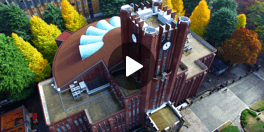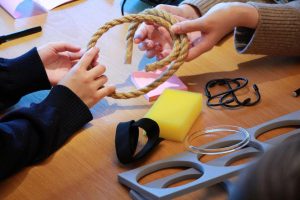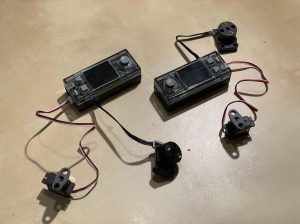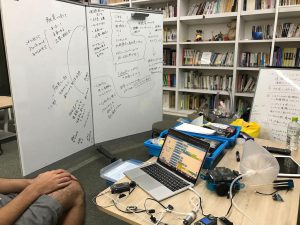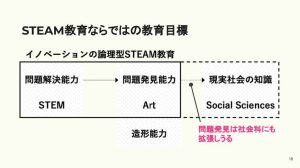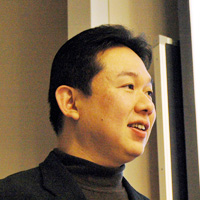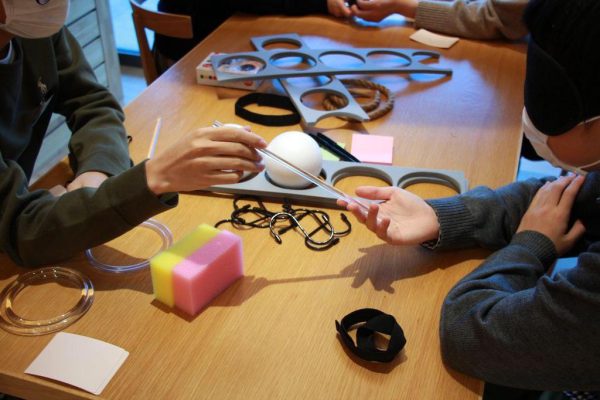
February 10, 2022
「STEAM教育ならでは」の授業を開発するDeveloping a lesson that is unique to STEAM education
山内研究室では2020年度から2年間、Makeblock Co., Ltd.からの助成を受けてSTEAM教育に関する研究を進めてきました。STEAM教育とは、Science, Technology, Engineering, Arts, and Mathematicsの頭文字を取ったものです。理工系の知識を活用した問題解決型のSTEM教育に、芸術やリベラルアーツ(Arts)を統合する特徴があります。
研究では、国際的なSTEAM教育の動向をレビューしたうえで、Artsを統合した「STEAM教育ならでは」の授業開発に取り組んできました。アメリカや韓国、中国の先進事例を見ていると、STEAM教育と言いながらもArtsの役割が明確ではない、科学教育・工学教育的な授業も見られるからです。
そこで、苗村研究室や筧研究室のメンバーにも参画してもらい、「身体・触覚」と「コンピュータに媒介されたコミュニケーション(CMC)」を主題とした授業を開発しました。
個人的な連絡からオンライン授業まで、私たちの日常的なCMCは、言葉や視覚・聴覚に依拠して行われています。そうしたメディアはコミュニケーションを便利にしてくれる反面、「他の伝え方」を想像することを難しくしています。
授業では、子どもたちは身体や触覚を使って「形」や「概念」を伝える活動に取り組みます。その上で、Makeblock社のCyberPiをプログラミングすることで「触覚を遠隔で伝えるコミュニケーションデバイス」を製作します。これらのメディアアート的な活動を通して、情報技術を用いた問題解決過程への内省を促すのがねらいです。
コロナ禍での実践研究には難しさもありますが、ドルトン東京学園の協力を得て、感染症対策に配慮しながら初回授業を行いました。引き続き実践を進めたうえで、子どもたちが授業を通してどのような経験ができたのかを検証する予定です。
〈LINKS〉
・【開催報告】STEAM教育シンポジウム「日本の学校でSTEAM教育をどう展開するか」
・STEAM教育・プログラミング教育の指導案(Makeblock社)
・【Press Release】STEAM教育に関する研究を開始
記事:杉山昂平(特任研究員)
Yamauchi Lab has been researching STEAM education for two years since 2020 with a grant from Makeblock Co., Ltd. STEAM education is an acronym that stands for Science, Technology, Engineering, Arts, and Mathematics. It is characterized by the integration of the arts and liberal arts with STEM education that utilizes knowledge from science and engineering to solve problems.
In our research, we have reviewed international trends in STEAM education and have been working on developing classes that are unique to STEAM education. This is because when we looked at examples of classes designated as “STEAM” in the U.S., Korea, and China, we found that the role of arts was not clear, and some of these classes consisted mostly of science and engineering education.
Therefore, with the participation of members of Naemura Lab and Kakehi lab, we developed a class on the subject of “body and haptic sense” and “computer-mediated communication (CMC).”
From personal communication to online classes, the CMC we conduct in daily life relies on words, and the senses of sight and hearing. While such media make communication convenient, they also make it difficult to imagine other ways of communication.
In our class, students engage in activities to communicate shapes and concepts using their bodies and haptic sense. Then, by programming Makeblock’s CyberPi, they create a communication device that conveys haptic sense remotely. These media art activities aim to encourage students to reflect on the process of problem-solving using information technology.
Despite the difficulties of conducting practical research during the COVID-19 crisis, we conducted the first class with the cooperation of Dalton Tokyo Junior High School. We are planning to continue the class and investigate the type of experiences it allows the students to have.
〈LINKS〉
・【開催報告】STEAM教育シンポジウム「日本の学校でSTEAM教育をどう展開するか」
・STEAM教育・プログラミング教育の指導案(Makeblock社)
・【Press Release】STEAM教育に関する研究を開始
Text: Kohei Sugiyama (Project researcher)
English proofreading: David Buist (Project senior specialist)
主担当教員Associated Faculty Members
教授
山内 祐平
- 文化・人間情報学コース
- アジア情報社会コース
Professor
YAMAUCHI, Yuhei
- Cultural and human information studies course
- ITASIA Program

